Results
-
 £122.50
£122.50Mamma Mia! - Björn Ulvaeus
On the 6th of April 1999, exactly 25 years after ABBA had won the Eurovision Song Contest with the song Waterloo, the musical Mamma Mia! opened in London. The funny and appealing love story, based on 22 ABBA classics, became an immediate success. Arranger Peter Kleine Schaars has selected five of the most famous titles from the musical, added the hit Waterloo and used his musical imagination. The result is a catchy ABBA medley that will appeal to young and old.
Estimated dispatch 7-14 working days
-
 £78.95
£78.95Armed Forces On Parade
Here is a striking medley, in march tempo, of tunes associated with the Armed Services. Included are: Anchors Aweigh, The Caisson Song, The Marines' Hymn and The U.S. Air Force Song. This would be an excellent addition to any young band library!
Estimated dispatch 7-14 working days
-
 £89.95
£89.95Hello Sunshine - Jeanette Arsenault
This is the song to perk up your audience and make them smile. They'll be whistling this melody after the concert. It just a pleasant song, enjoyable by all. 1st trumpet's highest note is G.
Estimated dispatch 7-14 working days
-
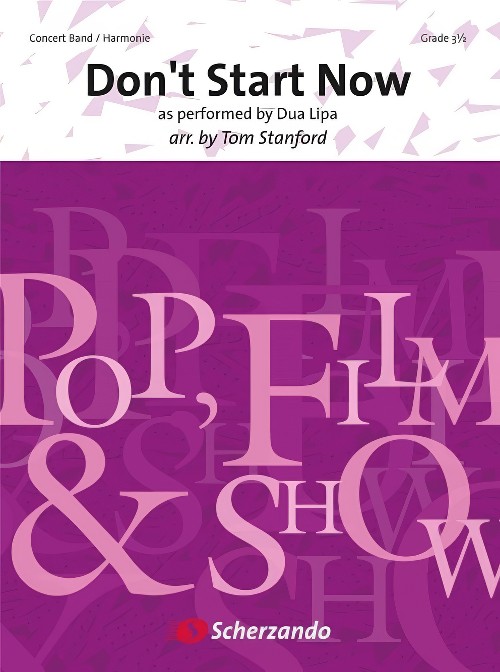 £84.99
£84.99Don't Start Now (Concert Band - Score and Parts) - Stanford, Tom
Don't Start Now, by the British singer Dua Lipa, is the first single from her second studio album, Future Nostalgia. The accompanying music video was uploaded to her YouTube channel upon the single's release. In the song, the singer tells her ex-lover that she is now over him. She gave her first live performance of it on The Graham Norton Show, after that she sang it a number of times at various award shows, TV programmes and music festivals. This arrangement by Tom Stanford will make sure that this disco pop song will also find its way into the world of wind music. Duration: 3.00
Estimated dispatch 7-14 working days
-
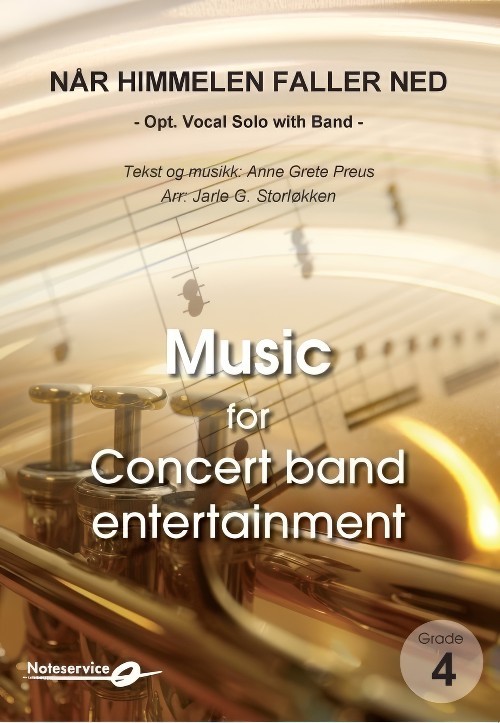 £91.00
£91.00Nar Himmelen Faller Ned (Optional Vocal Solo with Concert Band - Score and Parts) - Preus, Anne Grethe - Storlokken, Jarle
Nar himmelen faller ned (When the sky falls down) is the most famous song by Norwegian singer/songwriter Anne Grete Preus (1957-2019). It was released as single record in 1998 and included on the "Best of" collection "Mosaikk - 16 biter" later the same year. The song was also one of her very first hits as a solo artist. Her great career included many prestigious awards. Most notably are the "Spellemannsprisen" (the Norwegian Grammy) which she won several times. This arrangement was originally written for Preus herself as vocal soloist with Concert Band. In this reworked version, the vocal solo part can be omitted as the melody is spread out in the various band parts. Duration: 4.15
Estimated dispatch 7-14 working days
-
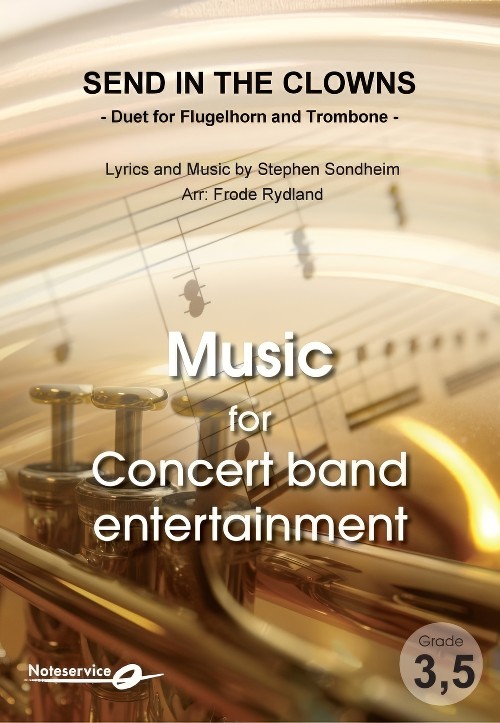 £91.00
£91.00Send in the Clowns (Flugelhorn and Trombone Duet with Concert Band - Score and Parts) - Sondheim, Stephen - Rydland, Frode
Send in the Clowns was originally written for soloist with Brass Band accompaniment for Eikanger-Bjorsvik Musikklag. The song is taken from the musikal A Little Night Music by Stephen Sondheim. In the song, the character Desiree reflects on the ironies and disappointments of her life. Duration: 3.15
Estimated dispatch 7-14 working days
-
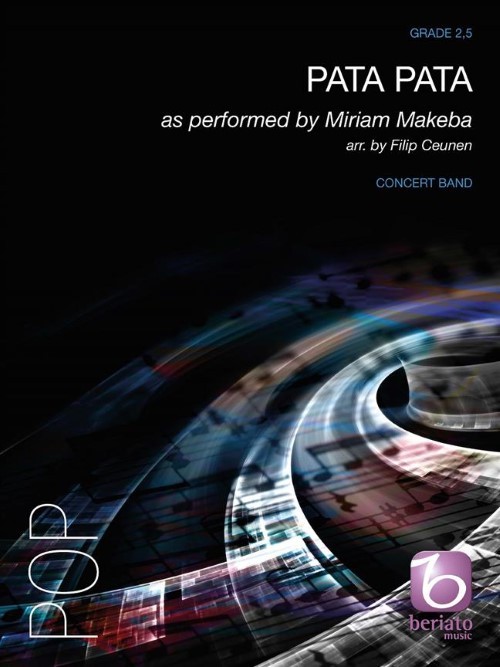 £69.99
£69.99Pata Pata (Concert Band - Score and Parts) - Ceunen, Filip
Pata Pata might be the song with the fewest words in the history of pop music, but it is nevertheless extremely popular and known to every generation. The perky character of the song, along with this careful arrangement for small and beginner bands, make 'Pata Pata' a nice piece of music to add to any concert program.
Estimated dispatch 7-14 working days
-
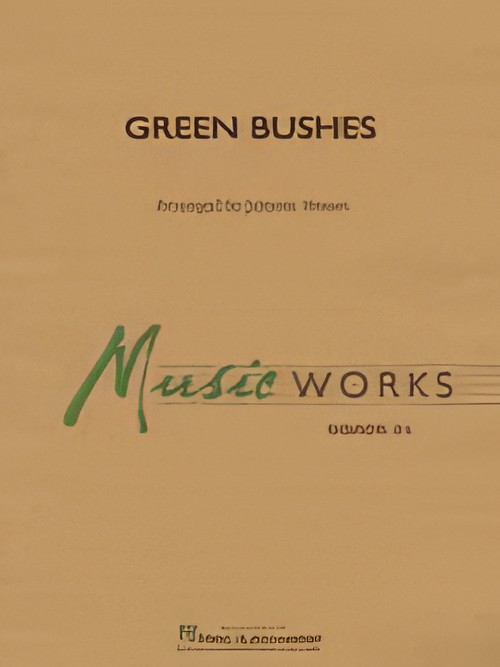 £53.50
£53.50Green Bushes (MusicWorks Concert Band - Score and Parts) - Grainger, Percy Aldridge - Vinson, Johnnie
Through the years this well-known English folk song has been a favourite with composers including Ralph Vaughan Williams (English Folk Song Suite) and George Butterworth (The Bank of Green Willow). One of the best-known versions of Percy Grainger's 1921 setting for two pianos, and this delightful arrangement for young bands is based in part on Grainger's version.Duration: 2:45
Estimated dispatch 7-14 working days
-
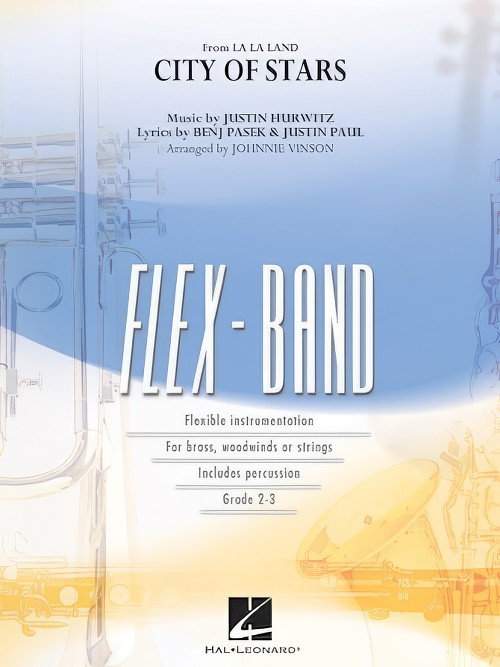 £60.99
£60.99City of Stars (from La La Land) (Flexible Ensemble - Score and Parts) - Vinson, Johnnie
The highly acclaimed movie musical La La Land, took home six Academy awards including Best Original Song for City of Stars. Here is a great sounding arrangement of this charming song scored for flexible instrumentation.
Estimated dispatch 7-14 working days
-
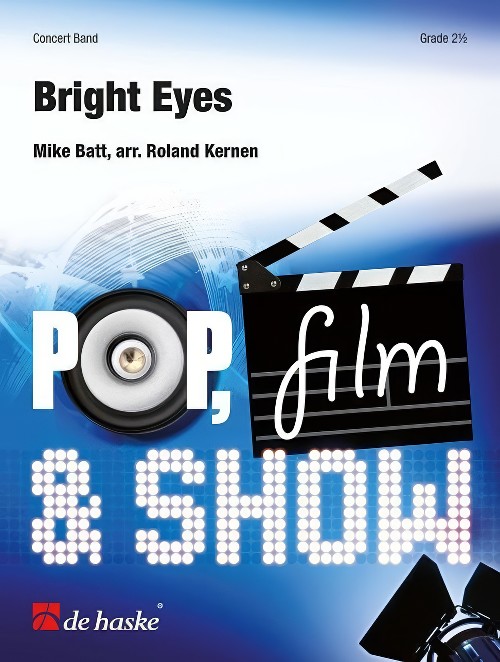 £74.99
£74.99Bright Eyes (Concert Band - Score and Parts) - Batt, Mike - Kernen, Roland
In 1976, Mike Batt wrote Bright Eyes especially for Art Garfunkel, of the duo Simon & Garfunkel, who sang it as the title song of the animated film Watership Down. At that time no one could guess at the global success that this classic melancholy yet wonderful song would enjoy. 35 years, numerous chart appearances, cover versions and awards later, here's Roland Kernen's sensitive arrangement for a performance to fall in love with all over again!Duration: 4:00
Estimated dispatch 7-14 working days
